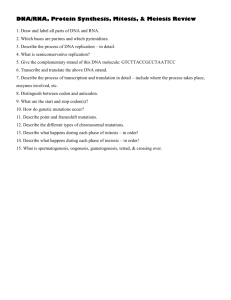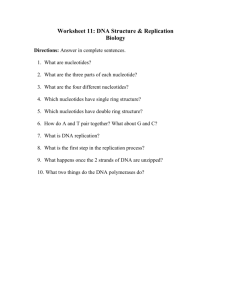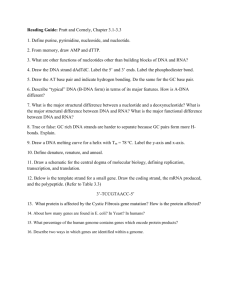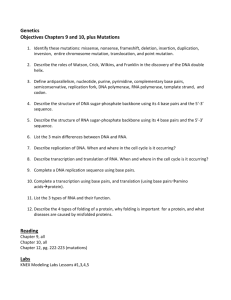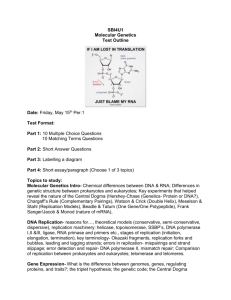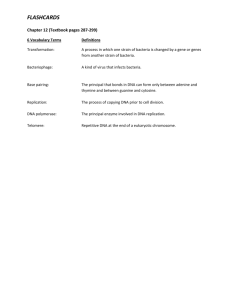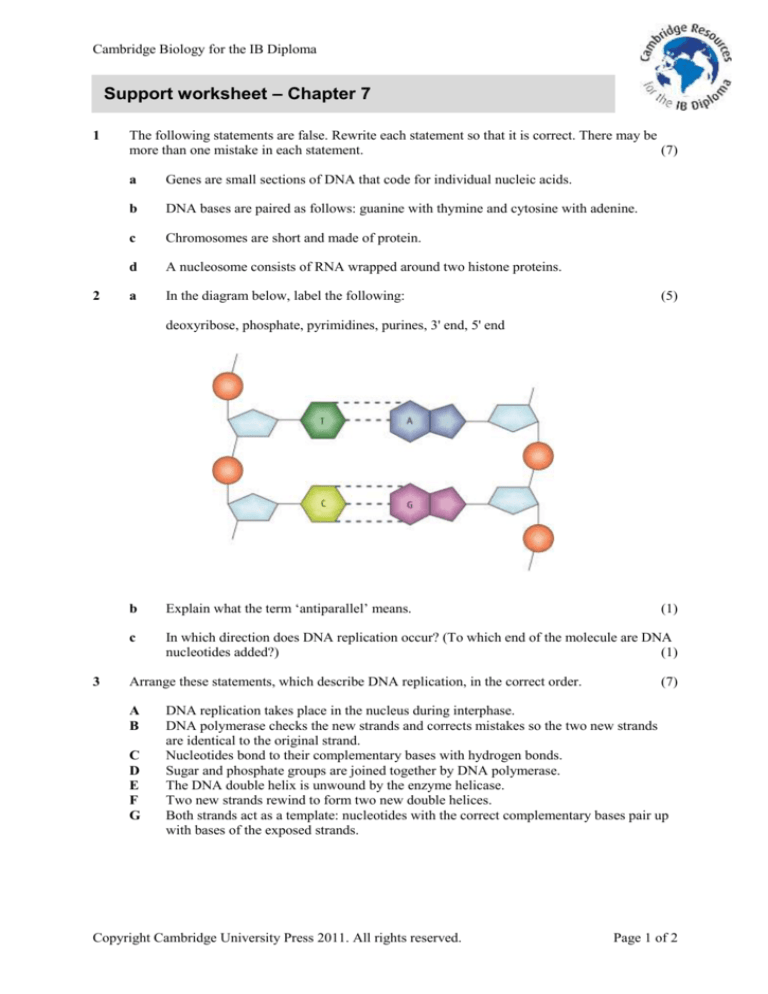
Cambridge Biology for the IB Diploma
Support worksheet – Chapter 7
1
2
The following statements are false. Rewrite each statement so that it is correct. There may be
more than one mistake in each statement.
(7)
a
Genes are small sections of DNA that code for individual nucleic acids.
b
DNA bases are paired as follows: guanine with thymine and cytosine with adenine.
c
Chromosomes are short and made of protein.
d
A nucleosome consists of RNA wrapped around two histone proteins.
a
In the diagram below, label the following:
(5)
deoxyribose, phosphate, pyrimidines, purines, 3' end, 5' end
3
b
Explain what the term ‘antiparallel’ means.
c
In which direction does DNA replication occur? (To which end of the molecule are DNA
nucleotides added?)
(1)
Arrange these statements, which describe DNA replication, in the correct order.
A
B
C
D
E
F
G
(1)
(7)
DNA replication takes place in the nucleus during interphase.
DNA polymerase checks the new strands and corrects mistakes so the two new strands
are identical to the original strand.
Nucleotides bond to their complementary bases with hydrogen bonds.
Sugar and phosphate groups are joined together by DNA polymerase.
The DNA double helix is unwound by the enzyme helicase.
Two new strands rewind to form two new double helices.
Both strands act as a template: nucleotides with the correct complementary bases pair up
with bases of the exposed strands.
Copyright Cambridge University Press 2011. All rights reserved.
Page 1 of 2
Cambridge Biology for the IB Diploma
4
Complete the following table, which describes the roles of the enzymes involved in
DNA replication.
Enzyme
(5)
Function in DNA replication
helicase
synthesises RNA primers
DNA polymerase III
removes RNA primer and replaces it with DNA
DNA ligase
5
During transcription, DNA is opened up by RNA polymerase. One strand is used to form
mRNA. Which of the following statements are true and which are false?
a
The sense strand has the same base sequence as the new mRNA.
(1)
b
The antisense strand is the template for transcription.
(1)
c
The 3' end of a free RNA nucleotide is added to the 5' end of the RNA molecule that is
already synthesized.
(1)
d
The new mRNA has a base sequence that is complementary to the antisense strand.
(1)
e
Eukaryotic DNA is different from prokaryotic DNA because it contains stretches of
DNA that are non-coding.
(1)
Introns are removed from mRNA after it is produced in eukaryotes.
(1)
f
6
Enzyme activity may be affected by competitive or non-competitive inhibitors.
a
Identify which of the diagrams below represents each type of inhibition.
(4)
b
Explain the shapes of the two graphs, which show rate of reaction plotted against
substrate concentration.
(2)
Copyright Cambridge University Press 2011. All rights reserved.
Page 2 of 2

